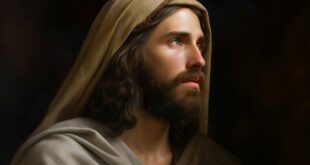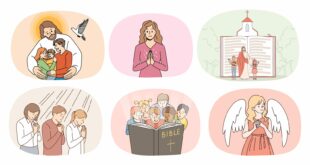John 19:23 Then the soldiers, when they had crucified Jesus, took his garments, and made four parts, to every soldier a part; and also his coat: now the coat was without seam, woven from the top throughout. They said therefore among themselves, Let us not rend it, but cast lots for it, whose it shall be: that the scripture might be fulfilled, which saith, They parted my raiment among them, and for my vesture, they did cast lots. These things, therefore, the soldiers did.
(Historical Fiction)
I, Caelius (pronounced KIE-lee-oos), had not wanted to be assigned to Jerusalem, but that’s where the Roman Army sent me. I was proud to be a Roman soldier. In poverty, I had signed up to join. It was a way out of poverty and low social status. I had always admired the soldiers and was excited to join. Now, I have finished ten years of my 25-year commitment to the Army. I completed the initial rigorous training and now had significant battle experience.
In Jerusalem, I discovered quickly that the Jews hated the Romans. Tension was consistently high, with hot antagonism toward Rome and the Roman soldiers. Before long, I heard of the famous teacher Jesus, who taught amazing things about love and peace. The crowds spread the story that He actually performed miracles. One story even claimed that He had started with only five loaves and two fishes and fed a massive gathering of 5,000 men plus their wives and children. That was probably wishful imagination by his followers. He certainly did not fit into the mold of the Jewish religious establishment. The Jewish leaders hated Him.
At the time of the Jewish Passover feast, the Jewish leaders contrived to arrest Jesus after one of His followers betrayed him. An unexpected trial took place at night, and Pilate permitted Jesus to be crucified. And then, to my dismay, I was assigned, with three other soldiers, to do the execution. I had assisted in other crucifixions before, but this one stretched my understanding. All I had ever heard was that Jesus did good things and was a superb teacher. But the Jews said Jesus had claimed to be the son of God, which demanded capital punishment for blasphemy.
I arrived at the place of execution – the Jews called it Golgotha, the place of a skull. I dressed in the usual Roman soldier dress – a red tunic, my galea (helmet), balteus (belt), lorica hamata (armor), sagum (a bright red cloth over my armor), and my caligae (heavy-soled sandals). I also carried my gladius (short sword), and a pilum (javelin).
I saw Jesus coming up the hill of Golgotha. He was so weak from the scourging that He could not carry his cross all the way. Other soldiers had coerced another Jew to carry the cross for him. As we nailed Him to the cross and then stood the cross up and dropped it in the prepared hole, I could see the pain all over His face and body. But He did not complain.
Then I heard Jesus say, “Father, forgive them: for they know not what they do.” (Luke 23:34). I couldn’t believe it. While suffering excruciating pain, He prayed for forgiveness for us soldiers and the Jews who had crucified Him. Those words were etched forever on my memory.
As was customary, the executing soldiers received the clothes of the person executed. We each took a part of Jesus’ clothing. The clothes were divided equally among us until we came to His coat. The coat was described in John 19:23 as “without seam, woven from the top without.” It was a quality garment similar to that worn by the high priest in Jerusalem’s temple. It would be ruined if we tore it into four parts. So, we cast lots for it. (Today’s equivalent might be flipping a coin or rolling the dice. This is not God’s plan today for making decisions. We now have the completed Bible and the ministry of the Holy Spirit.)
The casting of lots chose me to possess Jesus’ garment. I stayed at the crucifixion site and witnessed the three hours of darkness and the earthquake. I left the scene that day pondering, “Who was this man we had crucified?” And I thought I would never forget hearing Jesus say, “Father, forgive them, for they know not what they do.”
That night, I tossed and turned and could not go to sleep. All night, there was the picture in my mind of Jesus hanging there and saying, “Father, forgive them.” Jesus’ coat, which I brought home that day, kept reminding me.
Later, I heard how the guards were posted at Jesus’ grave, and they covered the entrance with a gigantic stone. Yet Jesus disappeared from the grave three days later – even while the guards were on duty. I heard about the bribe given to the guards to tell that the disciples stole the body. Ordinarily, soldiers would be executed for this offense. Evidently, the Jewish leaders made a deal with the authorities so that the soldiers escaped punishment.
Then, a new story spread through Jerusalem and the soldiers’ fort, or castrum, where the soldiers were quartered. Jesus had risen from the dead, just like He said He would. I wondered if that was really true.
Events moved on rapidly. The followers of Jesus, apostles, preached about the risen Savior, the Messiah. Thousands of converts were then baptized into what they called the church. The rapid growth stunned the Jewish leaders, and they fought back. They commanded the apostles not to speak of Jesus. They threw some in prison. Herod had one of the apostles (James) executed and planned to do the same to Peter – but he escaped.
I began to seek for every piece of news I could get about this church and the followers of Jesus. I heard that some of Jesus’ followers had been put to death, and some were driven from their homes. Would these followers of Jesus be willing to die believing in a false story?
But I could not shake the vision of Jesus dying on the cross and praying, “Father, forgive them.” I remembered it every time I looked at Jesus’ coat.
About five years later, I was stationed in Caesarea under the command of a centurion named Cornelius. I discovered that Cornelius was different from any other commanding officer I knew. He was a good leader and treated all soldiers under his command respectfully and kindly. Finally, I talked with Cornelius and asked him why he was so different. It was then that Cornelius told me that he had come to know Jesus personally through the witness and ministry of the apostle Peter. He trusted Christ as his Savior, and many of his friends trusted Jesus at the same time.
It was true! Jesus had risen from the dead and is the Son of God. Cornelius had been forgiven of his sin and trusted Jesus. He now served Jesus.
Cornelius asked me, “Would you like to receive Christ as your Savior? Would you like to know Jesus? I immediately answered, “Yes,” and accepted Christ. Now I know Jesus and finally understand how and why Jesus said, “Father, forgive them.”
 The Bottom Line, Ministries Christian News, Articles, & Poetry
The Bottom Line, Ministries Christian News, Articles, & Poetry 





Dale,
You did a phenomenal job! I love this entire piece through the retelling of how that Roman Soldier felt and thought.
I enjoyed this article very much!
And of course – great message.
Thank you!
God Bless~
Outstanding story. Reading it made me feel like I was right there next to that soldier. I’m sharing this story with my other friends and family.